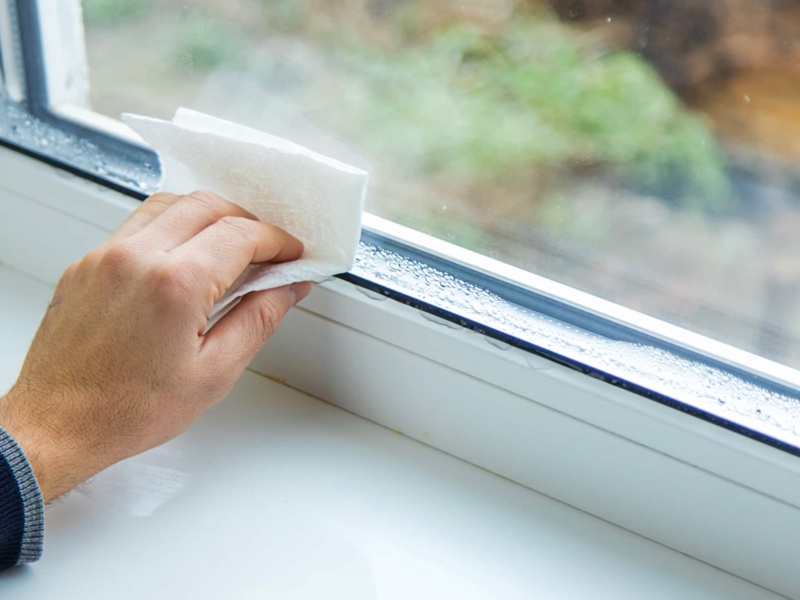Living in Pittsburg, Kansas, means dealing with dramatic seasonal changes that can significantly affect your home's humidity levels and, consequently, your HVAC performance. Understanding this relationship is crucial for maintaining ideal indoor air quality while continuing to manage your energy costs.
High Humidity Increases HVAC Workload
When humidity levels rise above the optimal range of 30% to 50%, your HVAC system works overtime to maintain comfortable temperatures. High humidity makes the air feel warmer than it is, forcing your cooling system to run longer cycles.
That increased workload not only drives up energy bills but unnecessarily puts a strain on your HVAC equipment, potentially shortening its lifespan. Understanding and managing this can bring a sense of comfort and relaxation to homeowners.
During Pittsburg's humid summer months, your air conditioning unit must remove both heat and moisture from the air. When humidity exceeds optimal levels, the system struggles to effectively dehumidify your space, leaving you feeling uncomfortable despite running continuously.
Low Humidity Reduces Heating Efficiency
Conversely, low humidity during Kansas winters creates its own set of challenges for HVAC performance. Dry air can feel cooler than humid air at the same temperature, causing you to increase the thermostat setting to achieve a comfortable temperature. That forces your heating system to work harder and consume more energy.
Additionally, arid conditions can cause static electricity buildup and respiratory discomfort, prompting homeowners to seek alternative heating solutions that may conflict with their primary HVAC system's operation.
Comfort and Health Implications
Improper humidity levels don't just affect your HVAC system—they also impact your daily comfort and health. High humidity promotes and increases the production of mold and dust mites, significantly degrading indoor air quality. These conditions can trigger allergies and respiratory issues, which can be particularly problematic for families with sensitive individuals.
Conversely, low humidity can cause dry skin, irritated nasal passages, and increased susceptibility to respiratory infections. It also damages wooden furniture and flooring, creating additional maintenance concerns for the home.
Signs of Humidity-Related HVAC Issues
Watch for these indicators that humidity is affecting your HVAC performance:
- Consistently high energy bills despite normal usage
- Frequent cycling or inability to reach set temperatures
- Visible condensation on windows or walls
- Musty odors suggesting mold growth
- Static electricity or overly dry air
- Uneven temperatures throughout your home
Solutions for Managing Humidity
Maintaining the best humidity level requires a multi-faceted approach. Start with proper ventilation in areas prone to moisture, such as bathrooms and kitchens. Consider upgrading to a programmable thermostat with humidity sensing capabilities.
For comprehensive humidity control, whole-house humidifiers and dehumidifiers can work in alongside your existing HVAC system to maintain optimal moisture levels throughout the year. These solutions integrate seamlessly with your existing setup, providing precise control over indoor air quality.
Regular maintenance also has a vital role in managing humidity. Clean air filters allow better airflow and moisture removal, while properly sealed ductwork prevents humid outdoor air from infiltrating your system. By ensuring these components are in good condition, you can effectively control your home's humidity levels and prolong the life of your HVAC system.
Importance of Professional Assessment
While homeowners can monitor humidity levels with simple hygrometers, addressing humidity-related issues with HVAC performance often demands the experience of a professional HVAC technician. HVAC professionals can assess your system's capacity, recommend appropriate humidity control solutions, and ensure proper installation and calibration.
Professional technicians can also identify underlying issues, such as inadequate insulation or ductwork problems, that contribute to humidity imbalances, providing comprehensive solutions rather than temporary fixes.
Protect Your HVAC Investment With Professional Humidity Management
Managing humidity is essential for optimal HVAC performance in Pittsburg, Kansas's variable climate. Don't let humidity issues compromise your HVAC system's performance or your family's comfort. Contact Harris Heating & Air today to schedule a professional assessment and ensure optimal performance. We serve homeowners in Pittsburg, Kansas, as well as in Webb City, Joplin, Carl Junction, Carthage, and Neosho, Missouri.
